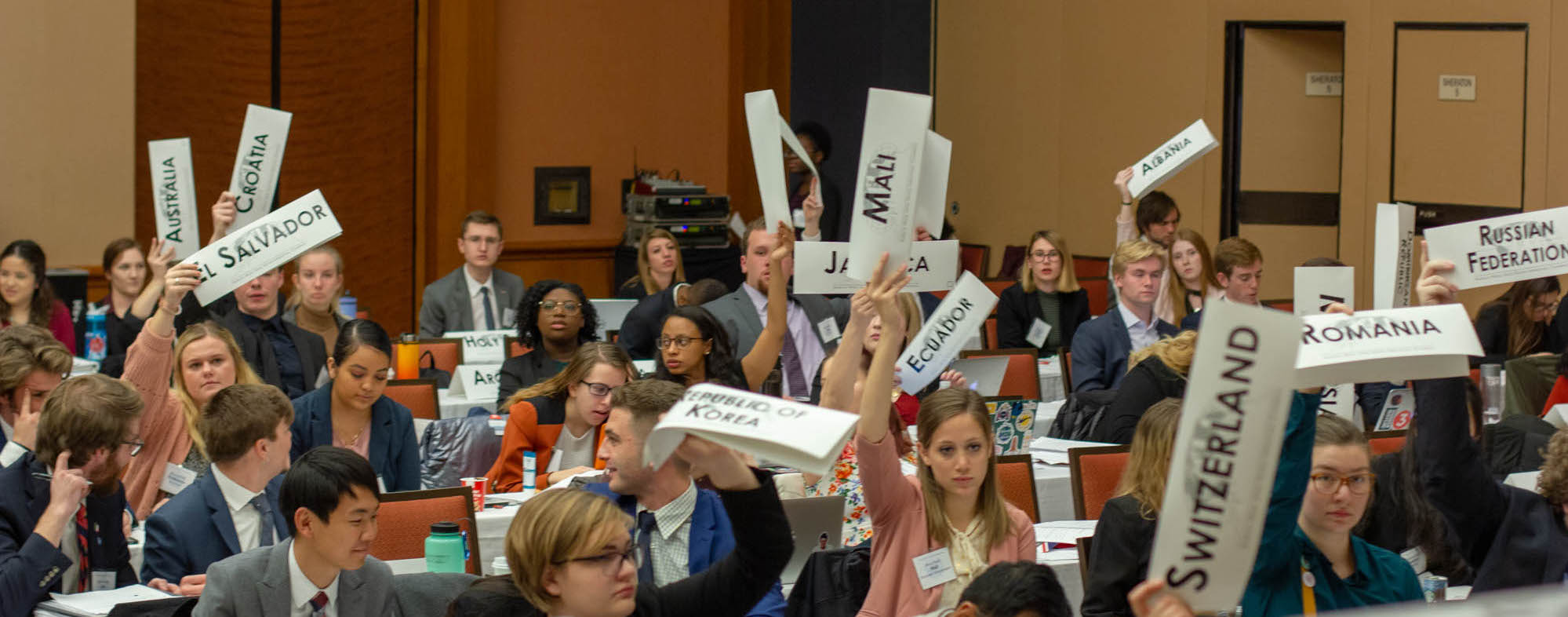
Economic Development for the Betterment of All: the General Assembly Second Committee

International cooperation in economic development creates benefits for participating countries and the international community as a whole. The General Assembly Second Committee or the Economic and Financial (ECOFIN) Committee serves as a forum for Member States to discuss and coordinate larger economic development strategies. These strategies seek to grow international financial and trade networks. Topics for the Second Committee fall under ten major themes:
- Macroeconomic policies
- Operational activities for development
- Financing for development
- Groups of countries in special situations
- Globalization and interdependence
- Eradication of poverty
- Sustainable development
- Information and communication technologies for development
- Agriculture development, food security and nutrition
- The sovereignty of the Palestinian people over their natural resources
As representatives discuss solutions within this committee, it is important that they keep a few notes about purview in mind. Where this committee does discuss economic development of Member States and State-to-State assistance, it does not discuss or set the budget for the United Nations. This responsibility belongs to the General Assembly Fifth Committee. Additionally, social issues that affect development are outside the purview of the Second Committee. These issues include but are not limited to social development questions related to youth, family, ageing, persons with disabilities, crime prevention, criminal justice, and international drug control. These issues fall under the purview of the General Assembly Third Committee.
This year at AMUN, the Second Committee will be covering two topics: ensuring access to affordable, reliable, sustainable and modern energy for all, and international migration and development. To take a deep dive into these topics, check out the AMUN Handbook here.
The Second Committee’s first topic takes a look at global energy needs. A key component of any development strategy is stable infrastructure. The 2030 Agenda for Sustainable Development addresses the global need for reliable, accessible, and renewable energy in goal seven by 2030. Around 87 percent of the global population has access to electricity. However, regions within Africa, South America, and East Asia see higher populations lacking access to electricity. Additionally, only 12 percent of European and North American electricity production comes from renewable sources. For the Second Committee, the challenge will be to consider how to make energy production both accessible and renewable. This will bolster development efforts around the globe.
International migration and development is also under consideration in the Second Committee. In recent years, the population of international migrants has grown significantly, with 258 million migrants worldwide in 2017 according to the International Migration Report. Many ‘push’ factors such as economic stagnation, conflict, and climate change create issues that drive migrants from their home country. Additionally, ‘pull’ factors such as jobs, health care, and comparative safety draw migrants to seek a new life in another country. Yet, a 2017 Ipsos survey showed that in 25 countries, over 40 percent of people believed that migration creates issues within their country. Representatives will need to consider how to balance the needs of migrants while promoting development in both countries seeing an increase in migration and those losing population.
Keep Up With The Accords
More to read
The AMUN Accords is a premier resource for fact-based Model United Nations simulations. We are always looking for new contributors. Want to write for the AMUN Accords? Check out out the submission guidelines and then get in touch!




